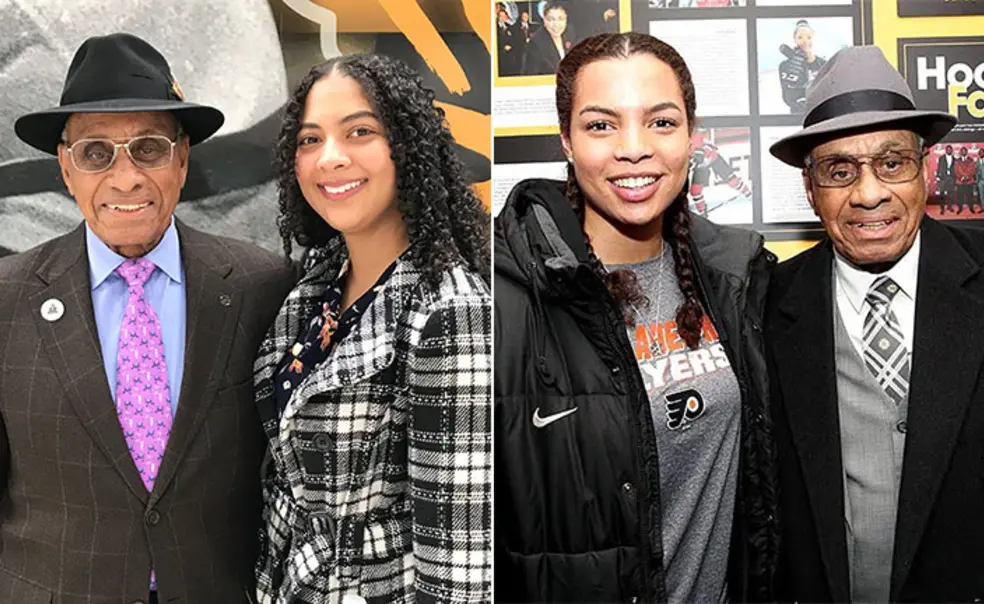Melissa Parnagian ’17 and Kelsey Koelzer ’17 Work to Honor Hockey Trailblazer Willie O’Ree
While they may have graduated from Princeton less than three years ago, Melissa Parnagian ’17 and Kelsey Koelzer ’17 have already made their mark on professional hockey. The two are working to recognize Willie O’Ree, who became the first black player in NHL history when he stepped onto the ice for the Boston Bruins in 1958.
O’Ree himself never sought fame or accolades, but Koelzer and Parnagian have helped to share his story by lobbying Congress to award O’Ree the Congressional Gold Medal. Both view his humility — and the fact that he is blind in one eye — as part of what makes his story so inspiring.
“Imagine [being the first black player], facing so much negativity and hostility socially, and then doing it blind in one eye. You just sit back and it’s absolutely amazing,” says Koelzer, who also appears in the documentary Willie, which will air on ESPN2 Feb. 17.
Koelzer played hockey at Princeton and went on to be selected No. 1 overall in the 2016 Women’s Professional Hockey League Draft. She recently became the first head coach of the Arcadia University women’s hockey team, which will begin competing in 2021.
Parnagian works in the NHL’s Office of Social Impact, Growth, and Legislative Affairs, where her work revolves around “expanding the universe of people who feel welcome to engage with hockey.”
Both Koelzer and Parnagian see sharing O’Ree’s story as part of a broader effort to make hockey more inclusive, particularly for people of color.
“Any time people are having conversations about diversity and inclusion, you have an opportunity to make positive change,” Parnagian says.
“It’s a sport that I think is still trying to gain popularity amongst a lot of different populations,” Koelzer adds.
Koelzer and Parnagian both find the project personally meaningful as well. Koelzer credits trailblazers like O’Ree for making it possible for her to play professional hockey and serve as a role model for others.
“[B]eing an African-American hockey player, it’s inherent that this is something that’s going to be interesting to me,” says Koelzer. “To be able to contribute to the sport in this way is something I’ll continue to cherish and push for, and that’s really possible because of Willie O’Ree.”
While she didn’t play hockey, Parnagian has been a sports fan for as long as she can remember. Growing up, she realized quickly that the value of sports often transcends what happens during the game.
“As a woman of color, I know in particular that stories about people of color in sports can make a big impact. These things make me really appreciate Willie’s story and really deeply grateful that I’m playing a small role in helping tell it to more audiences,” Parnagian says.
The Willie O’Ree Congressional Gold Medal Act, introduced last year, has a bipartisan group of more than 100 co-sponsors. Parnagian said that the bill “hasn’t been a hard sell” to legislators and noted that support grew after a recent showing of Willie on Capitol Hill.
O’Ree’s “massive achievements that have gone unrecognized for such a long period of time are being highlighted,” she says.












1 Response
Jim McMichael ’61 *83
6 Years AgoMuch Deserved
Well earned! Much deserved!
Go for it, young tigers.
From a Willie O’Ree and San Diego Gulls fan,